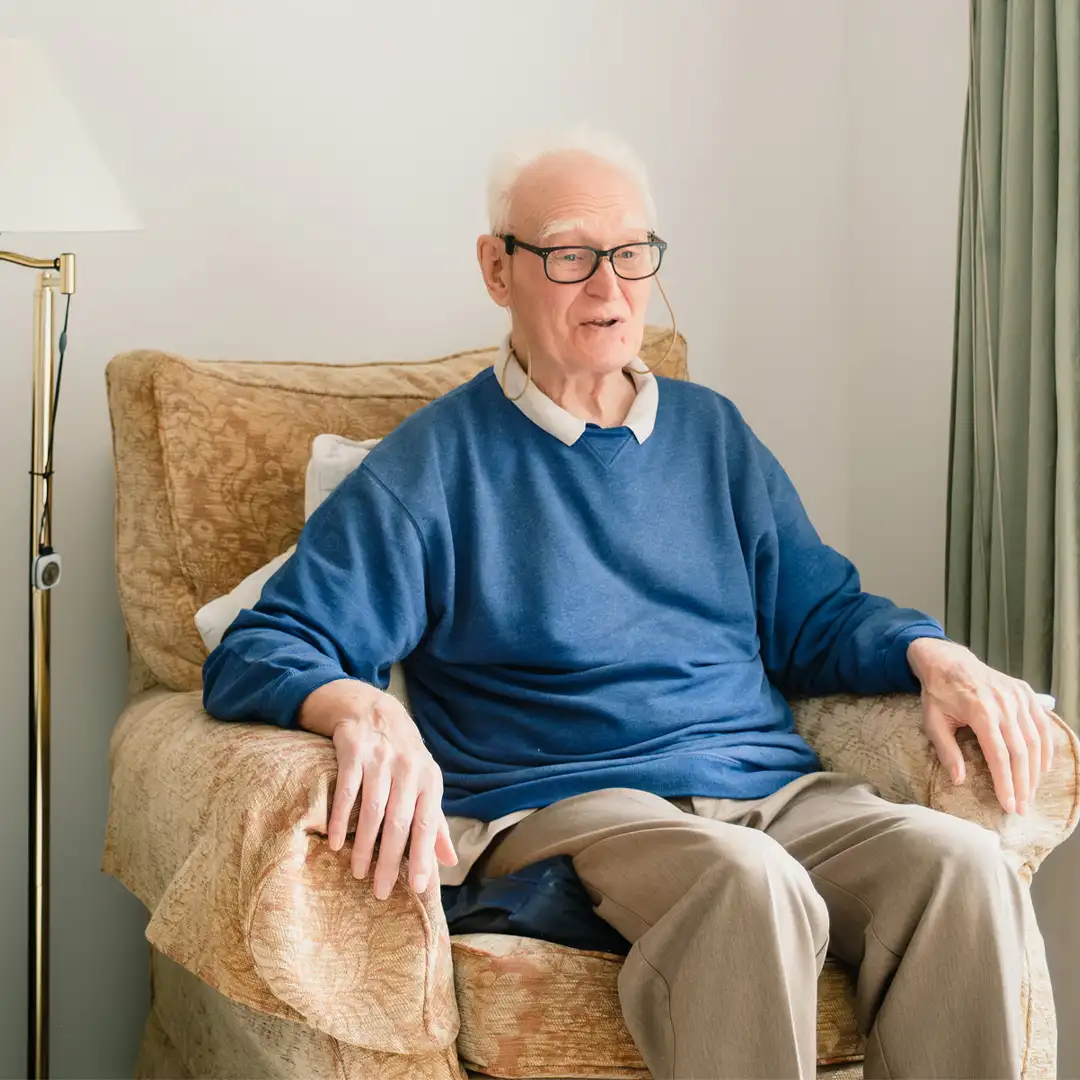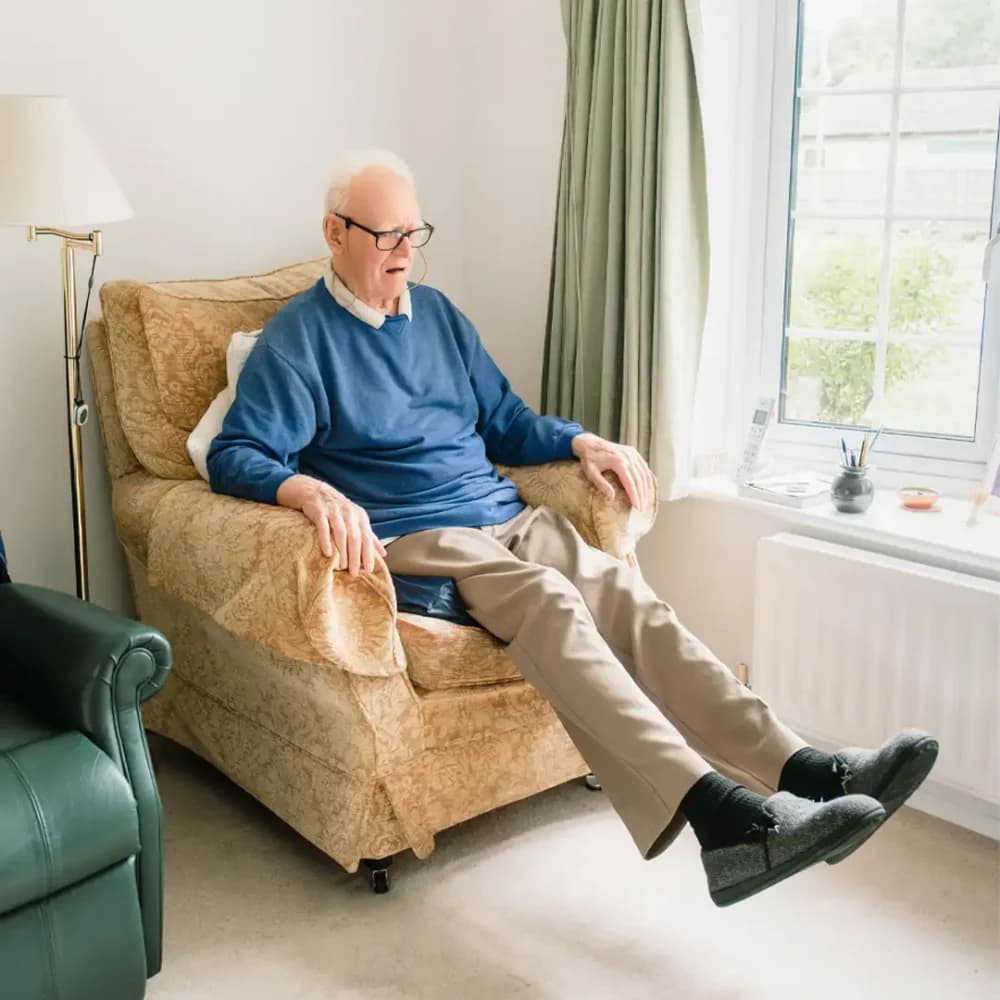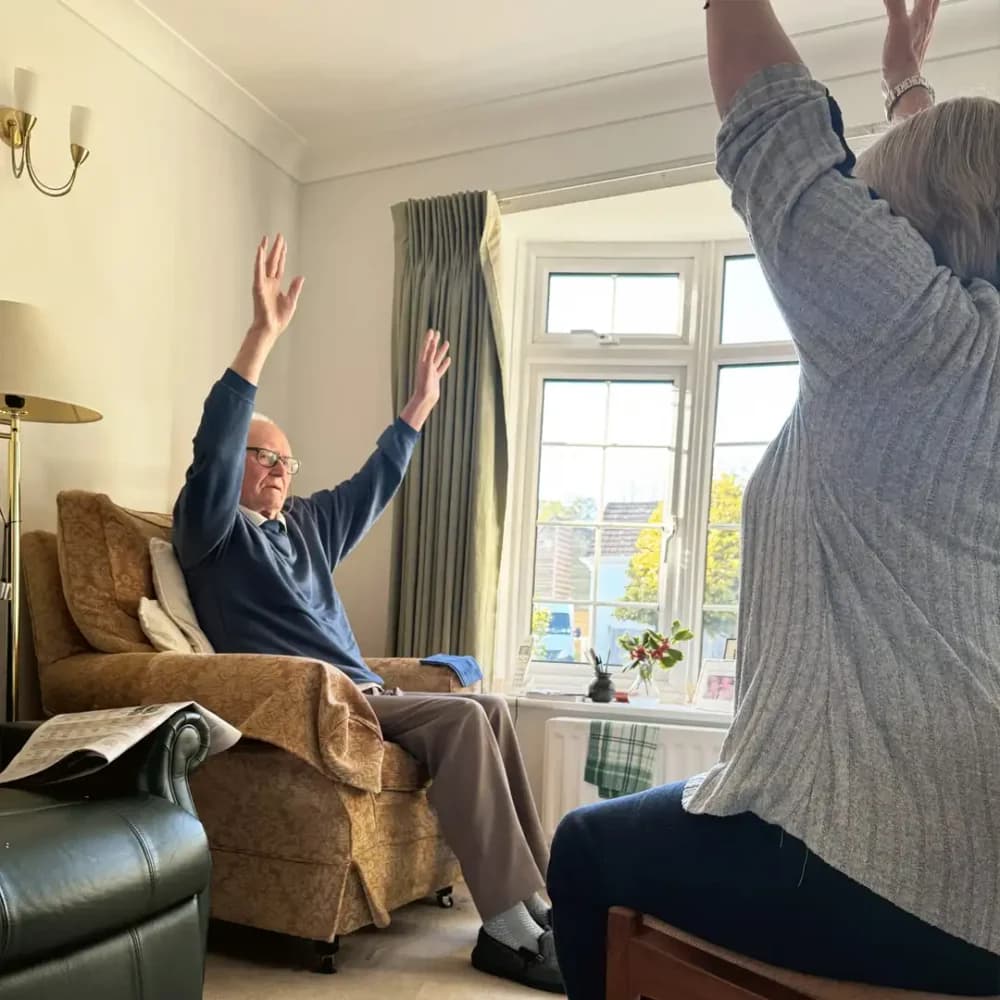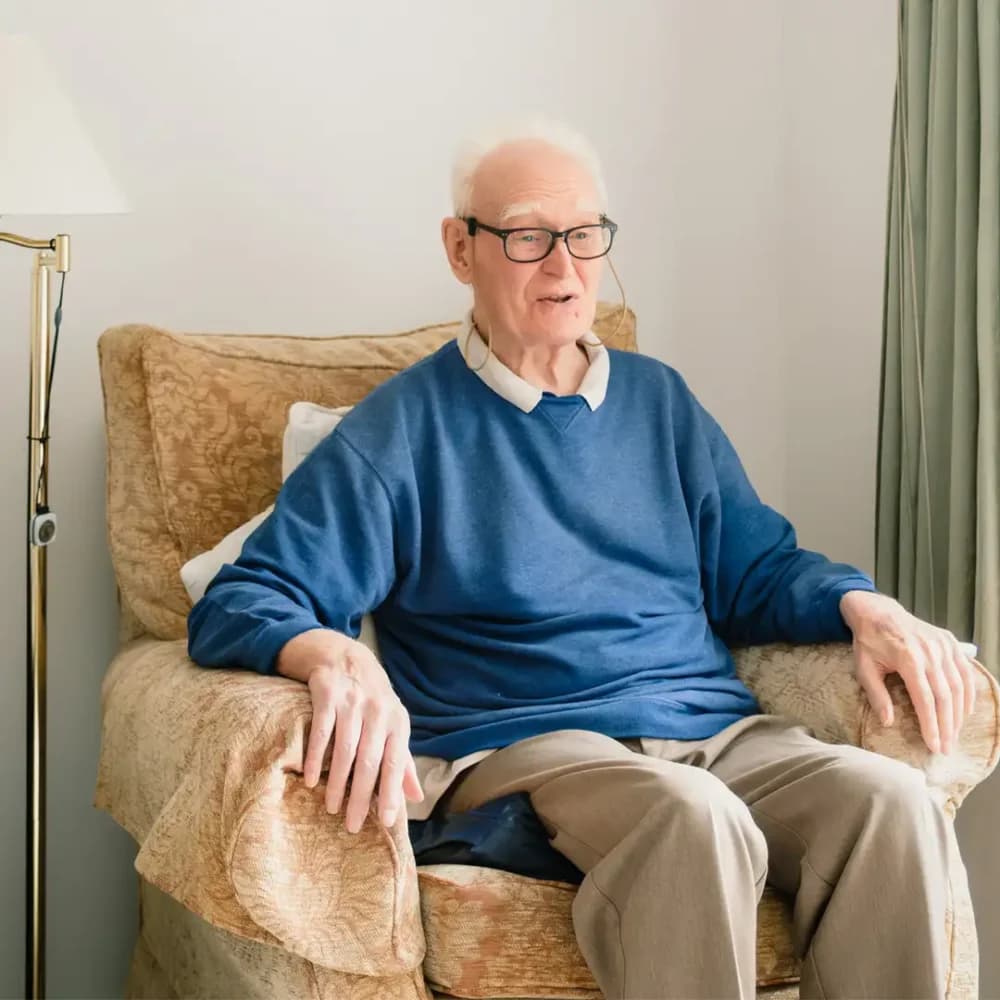How Live-In Care Helped Don Regain Independence at Home

From Complete Dependency to Setting Goals for 100: Don’s Pathway to Recovery
The walls of Don’s living room are covered with family photos of his sons, grandkids, and beloved wife Audrey who sadly passed away last year, August 2024. These connections have provided motivation and joy, reminding him of the life he’d built and the people who care about him. Now 93, with his 94th birthday approaching in January, Don speaks confidently about wanting to receive his letter from the King when he reaches the century mark. This goal represents hope, determination, and a refusal to give up despite the challenges he faces.
The Beginning:
A Couple’s Live-in Care Journey
Don and Audrey first came to Home Instead as a couple. Audrey, who had advanced dementia, needed full-time live-in care, while Don required morning and evening visits to help with washing, dressing, and getting into bed. The arrangement worked well, with the live-in care professional gradually taking on more responsibilities for Don during the day – meal preparation, medication management, and general support.
As Audrey’s condition progressed, the live-in care naturally became more of a couple’s package, though Don maintained his independence in some areas. He still took his mobility scooter to Sainsbury’s every morning to collect his newspaper and any shopping he needed – a routine that represented his determination to remain active and engaged with the world around him.
The loss of Audrey was devastating for Don, but the live-in care continued as his own health had begun to decline, and he’d been diagnosed with Parkinson’s disease earlier that year.
The Health Setback: When Everything Changed
What happened next illustrates how quickly circumstances can change for elderly individuals, and how crucial having the right support system becomes. In April this year, Don became seriously ill with shingles. Due to his Parkinson’s medication regime, the situation became complicated when he couldn’t keep his tablets down.
The result was a 27-day hospital stay that would prove to be a turning point. Don had to be kept in isolation due to the contagious nature of shingles, spending his time in a small room with no window, and with limited space. Hospital staff couldn’t get the necessary equipment into the cramped isolation room to help maintain his mobility. Don was quite literally ‘stuck’, in every meaning of that word.
Starting Recovery at Home with Skilled Live-In Care
When Don returned home at the end of April, the decline from his month-long hospital stay seemed devastating. The man who had been taking daily trips to the shops on his mobility scooter was now completely bed-bound, unable to sit up independently, unable to eat on his own, and requiring assistance with every aspect of daily life.
This is where Janet, Don’s primary live-in care professional, who has extensive experience supporting older adults with complex health conditions, stepped in to begin what would become a remarkable journey of recovery. Janet approached Don’s care with patience, encouragement, and, most importantly, the belief that improvement was possible. Rather than simply doing everything for Don, she focused on verbal encouragement, helping him rediscover his capabilities one small step at a time.

Small Steps Toward Regaining Independence
Almost five months after returning from hospital, Don’s progress has been remarkable:
- Even though he requires the MoLift for all transfers and can only stand for one to two minutes at most, he has regained many abilities that seemed lost forever.
- When the bed is positioned correctly after his morning care, Don can turn and sit on the side of the bed independently with just verbal encouragement.
- He can put his feet out of bed and stand on the MoLift platform – achievements that represent enormous progress from his bed-bound state just months earlier.
“He has a very strong will and he will try, which is the main point,” Janet explains. This determination, combined with daily exercises designed by hospital occupational therapists, have been key to his recovery. Don and his care professionals have been very diligent when it comes to performing prescribed exercises at least once a day, every day. Don can now eat independently, drink from a normal glass (rather than the beaker he needed initially), and perform small tasks like taking off his own slippers when he sits on the bed – movements that might seem minor but represent significant independence for someone who was completely dependent just months ago.

Finding Joy in Daily Life
What makes Don’s story particularly touching is how Janet has helped him reconnect with the activities and interests that make him who he is. Don is an intelligent, engaged man who loves politics, follows different kinds of sport, and has strong opinions about current events. The hospital stay had left him confused and disconnected from these interests.
Janet recognised that mental stimulation was as important as physical recovery. She sits with Don to help him complete crosswords and Sudoku puzzles from his daily newspaper. Janet jokes that she is “the pencil” while Don provides “the brains,” allowing him to maintain his love of mental challenges. She has also helped reintroduce reading into Don’s routine. Recognising that he used to love books before his hospital stay, she encouraged him to start reading again. That intellectual engagement and interaction have been key to Don’s overall improvement.
Looking Ahead: Hope, Goals, and Ongoing Support
Don’s story isn’t finished. While he faces ongoing challenges with his Parkinson’s disease and mobility limitations, his progress since returning from hospital demonstrates that recovery can happen at any age with the right support. His goal of reaching 100 isn’t just wishful thinking – it’s a testament to both his spirit and quality care that supports his daily Life.
For families in Farnborough, Farnham, or Fleet facing similar situations, Don’s journey offers hope. It shows that even after devastating setbacks, with patient, skilled, and dedicated care, remarkable improvements are possible. Don’s care professionals don’t just provide physical assistance – they provide encouragement, mental stimulation, social interaction, and the consistency that all allow for genuine progress. Sometimes the victories are small – taking off your own slippers or sitting up independently – but they represent the building blocks of a life lived with dignity and purpose.

If someone you love could use a little extra support at home, our team is here to talk through options with you. Call 01252 758716 today.